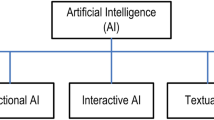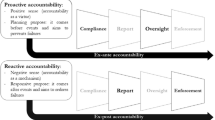Abstract
In this paper I shall describe the symbolic search space paradigm which is the dominant model for most of AI. Coupled with the mechanisms of logic it yields the predominant methodology underlying expert systems which are the most successful application of AI technology to date. Human decision making, more precisely, expert human decision making is the function that expert systems aspire to emulate, if not surpass.
Expert systems technology has not yet proved to be a decisive success — it appears to fare better in some areas of human expertise than others. As a result subdomains of human expertise are variously categorised and we shall examine a few of the suggested classification schemes. A particular line of argument explored is one which maintains that certain types of human decision making, at least, are not adequately approximated by the symbolic search space paradigm of AI. Furthermore, attempts to project this inadequate model of human decision making via implementations of expert systems will be detrimental to both our image of ourselves and the future possibilities for AI software.
Finally, we examine one possible route to the realization of AI, perhaps even practical applications of AI, that is a significant alternative to the model offered by the symbolic search space paradigm.
Similar content being viewed by others
References
Dreyfus, H.L. (1972), (2nd edn 1979),What Computers Can't Do, Harper & Row, New York.
Dreyfus, H.L. & Dreyfus, S.E. (1986),Mind over Machine, Macmillan/Free Press, CA.
Dreyfus, S.E. & Dreyfus, H.L. (in press), ‘Towards a reconciliation of phenomenology and AI', inThe Foundations of AI: A Sourcebook., D. Partridge & Y. Wilks (eds.), Cambirdge University Press, Cambridge.
Hewitt, C. (1985), ‘The Challenge of Open Systems’,BYTE April, ppp 223–242, (reprinted inThe Foundations of AI: A Sourcebook., D. Partridge & Y. Wilks (eds.), Cambridge University Press, Cambridge.
Marr, D. (in press), ‘AI: a personal view’ reprinted inThe Foundations of AI: A Sourcebook., D. Partridge & Y. Wilks (eds.), Cambridge University Press, Cambridge.
McClelland, J.L. & Rumelhart, D.E. (1986),Parallel Distributed Processing 2 vols., MIT Press, MA.
Negoita, C.V. (1985),Expert Systems and Fuzzy Systems, Benjamin/Cummings, CA.
Newell, A. (1980), ‘Physical Symbol Systems’,Cognitive Science 4, pp 135–183.
Newell, A. & Simon, H.A. (1972),Human Problem Solving, Prentice-Hall, NJ.
Newell, A. & Simon, H.A. (1976), ‘Computer Science as Empirical Inquiry: Symbols and Search’,CACM 19, 3, pp 113–126.
Searle, J. (1984),Minds, Brains and Science, Harvard University Press, MA.
Smolensky, P. (1987), ‘Connectionist AI, Symbolic AI, and the Brain’,AI Review Journal.
Partridge, D. (1986),AI: applications in the future of software engineering, Ellis Horwood/Wiley, Chichester.
Partridge, D. (1987a) ‘The Scope and Limitations of First Generation Expert Systems Technology, Future Generation Computer Systems’ (to appear).
Partridge, D. (1987b), ‘What's wrong with neural architectures’,Proceedings, IEEE Compcon '87 Conf., San Francisco, February (to appear).
Winograd, T. & Flores, F. (1986),Understanding Computers and Cognition, Ablex, New York.
Zadeh, L.A. (1975), ‘Fuzzy logic and approximate reasoning’,Synthese 30, pp 407–428.
Author information
Authors and Affiliations
Rights and permissions
About this article
Cite this article
Partridge, D. Human decision making & the symbolic search space paradigm in AI. AI & Soc 1, 103–114 (1987). https://doi.org/10.1007/BF01891271
Issue Date:
DOI: https://doi.org/10.1007/BF01891271




